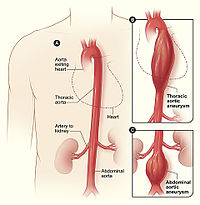
Flow diverters as a scaffold for treating direct carotid cavernous fistulas
Sign Up to like & getrecommendations! Published in 2019 at "Journal of NeuroInterventional Surgery"
DOI: 10.1136/neurintsurg-2019-014731
Abstract: Background Direct carotid–cavernous sinus fistulas (dCCFs) are high flow arteriovenous shunts between the internal carotid artery and the cavernous sinus. Recently, we have used the pipeline embolization device (PED) to treat dCCFs. Methods We describe… read more here.
Keywords: dccfs; direct carotid; treatment; carotid ... See more keywords

Direct carotid puncture in acute ischaemic stroke intervention
Sign Up to like & getrecommendations! Published in 2020 at "Stroke and Vascular Neurology"
DOI: 10.1136/svn-2019-000260
Abstract: Endovascular intervention for acute ischaemic stroke care is mostly performed in older patients, often with unfavourable aortic and supra-aortic anatomy, as well as cardiovascular comorbidities. A significant subset of them may benefit from transcervical access… read more here.
Keywords: intervention; acute ischaemic; ischaemic stroke; direct carotid ... See more keywords

Direct carotid puncture for endovascular surgery of intracranial aneurysms: Technical note for avoiding complications
Sign Up to like & getrecommendations! Published in 2022 at "Surgical Neurology International"
DOI: 10.25259/sni_1147_2021
Abstract: Background: While the most intracranial aneurysms are approachable by femoral or brachial artery puncture during endovascular surgery, in some cases, the lesion is difficult to reach due to complications such as the presence of winding… read more here.
Keywords: endovascular surgery; direct carotid; intracranial aneurysms; puncture endovascular ... See more keywords

Cerebellar Hemorrhage due to a Direct Carotid–Cavernous Fistula after Surgery for Maxillary Cancer
Sign Up to like & getrecommendations! Published in 2017 at "Journal of Korean Neurosurgical Society"
DOI: 10.3340/jkns.2015.1206.001
Abstract: Infratentorial cerebral hemorrhage due to a direct carotid–cavernous fistula (CCF) is very rare. To our knowledge, only four such cases have been reported. Cerebellar hemorrhage due to a direct CCF has not been reported. We… read more here.
Keywords: direct carotid; cerebellar hemorrhage; hemorrhage; due direct ... See more keywords

Direct Carotid Artery Exposure for Acute Cerebral Infarction in Hybrid Angiography Suite: Indications and Limitations
Sign Up to like & getrecommendations! Published in 2021 at "Frontiers in Surgery"
DOI: 10.3389/fsurg.2021.819053
Abstract: Objectives For the endovascular intervention of acute ischemic stroke, a transcervical route is an alternative approach in patients with challenging anatomical variations. Percutaneous puncture is a common way, but it can cause many fatal complications.… read more here.
Keywords: hybrid angiography; exposure; angiography suite; carotid artery ... See more keywords